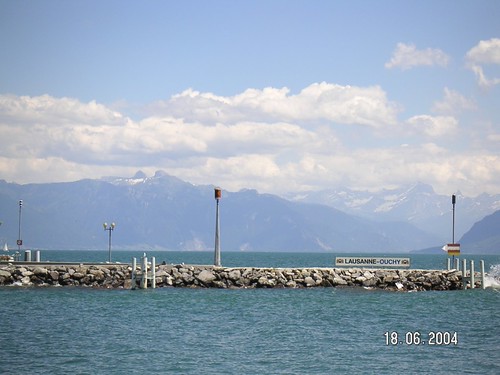Let's defy convention for a second, and instead of quoting the opening lines of this fantastic classic, below are the closing lines:
I can point to one or two things I have definitely learned by being hard up. I shall never again think that all tramps are drunken scoundrels, nor expect a beggar to be grateful when I give him a penny, nor be surprised if men out of work lack energy, nor subscribe to the Salvation Army, nor pawn my clothes, nor refuse a handbill, nor enjoy a meal at a smart restaurant. This is a beginning.
It's the last sentence in this vibrant yet bleak book that makes one want to go back and re-read it straight away. This is my second read of the book, and I was as mesmerised with Orwell's tales residing in the slums of Paris and London now, as I was then, some ten years ago.
It is difficult for me to pen down my thoughts on this book. Maybe start with the cover of my edition - it's incredibly simple, yet eye-catching. If I were to judge this book by its cover, I would say it's unpretentious, unapologetic, and is quite "black and white" (literally speaking). The contents are true to the cover - at least of the edition I am lucky enough to have on my shelf.
Paris, the most romantic city in the world, nicknamed the city of lights, unsurprisingly has a dark underbelly. Romanticism is abandoned as Orwell chronicles his time in Paris in the 1920s, spent completely broke in fairly squalid quarters. To get by, for some bread, wine and tobacco, Orwell worked some fairly grim jobs, which introduced him to a multitude of fascinating characters. The restaurant scene was buzzing in the city, and there were jobs available, but nothing to really write home about. Plenty to write a novel about though, littered with introspective and retrospective thoughts.
A plongeur is a slave, and a wasted slave, doing stupid and largely unnecessary work. He is kept at work, ultimately, because of a vague feeling that he would be dangerous if he had leisure. And educated people, who should be on his side, acquiesce in the process, because they know nothing about him and consequently are afraid of him.
Scammers, foreigners, war heroes, and eccentric neighbours all made multiple appearances as Orwell traipsed through Paris, fatigued and sleep-deprived, constantly being conned out of money, with most of his earthly possessions pawned.
It is a feeling of relief, almost of pleasure, at knowing yourself at last genuinely down and out. You have talked so often of going to the dogs - and well, here are the dogs, and you have reached them, and you can stand it. It takes off a lot of anxiety.
When he finally hits rock bottom, he sends a note to a friend in London, trying to see if life in London would improve. The friend suggested a job which seemed as an improvement, but Lady Luck was not smiling down on Orwell at the time, and by the time he got to London, the job was no longer available. History was about to repeat itself, as Orwell tried to navigate a very expensive city with no money, and few friends.
It (London) was the land of the tea urn and the Labour Exchange, as Paris is the land of the bistro and the sweatshop.
He slept in skipes, cheap skanky lodging houses, and Salvation Army shelters. For some of these places, you had to hand over all your money before you were allowed to enter; at others, you handed over all your tobacco. Unlike Paris, one couldn't sit on a bench in London lest the police arrested the offender for loafing around. Amidst other things, Orwell joined a bunch of ungrateful tramps in prayer for a cup of tea and a bun, he conversed at length with an amateur artist, and walked through the city waiting for shelters to open. One of the more thought-provoking sentences in the book was, in fact, mentioned by the amateur artist:
The stars are a free show; it don’t cost anything to use your eyes.
It is an amazing thought - simple yet evocative. Orwell even contemplates on the nature of jobs, and why the world sneers at beggars.
Beggars do not work, it is said; but then, what is work? A navvy works by swinging a pick. An accountant works by adding up figures. A beggar works by standing out of doors in all weathers and getting varicose veins, bronchitis etc. It is a trade like any other; quite useless, of course — but, then, many reputable trades are quite useless.
It is hard to dismiss poverty and beggars considering the amount they pay in suffering. Orwell, throughout the book, remains mostly conscientious and honest, as do a lot of the people he interacts with. He does not apologise for his situation, nor does he make any excuses for it. Orwell's claim to fame wasn't posthumous like Van Gogh's. Yet, when one considers how "down and out" Orwell was, and where he got to, and some of the books he churned out, one cannot help but be blown away. I say "one" in an abstract third-person kind-of way, but the previous sentence is meant to reflect what I think. I am absolutely blown away, for the second time, with this fantastic work of non-fiction.
 As some of you might already know, The Catcher In The Rye is one of my favourite books of all times. I've read it, and re-read it, and then read it again. At the age of fourteen, the first time I read it, I fell in love with Holden Caulfield. A decade later, I still love Holden Caulfield, and all his quirks, but I sympathise with him, and my heart goes out to him.
At one point, I was reading this book every year - sometimes, even more often. When I started working, my ancient edition found a permanent spot on my desk, and it was just there for me to flip through, on days when things didn't make sense. Eventually, the book found its way back to my bookshelf, and I picked it out the other day, to find some solidarity, and to fall in love with the book and the author all over again.
As some of you might already know, The Catcher In The Rye is one of my favourite books of all times. I've read it, and re-read it, and then read it again. At the age of fourteen, the first time I read it, I fell in love with Holden Caulfield. A decade later, I still love Holden Caulfield, and all his quirks, but I sympathise with him, and my heart goes out to him.
At one point, I was reading this book every year - sometimes, even more often. When I started working, my ancient edition found a permanent spot on my desk, and it was just there for me to flip through, on days when things didn't make sense. Eventually, the book found its way back to my bookshelf, and I picked it out the other day, to find some solidarity, and to fall in love with the book and the author all over again. Belated birthday wishes to Anita Brookner, and a day late, but a happy
Belated birthday wishes to Anita Brookner, and a day late, but a happy 
